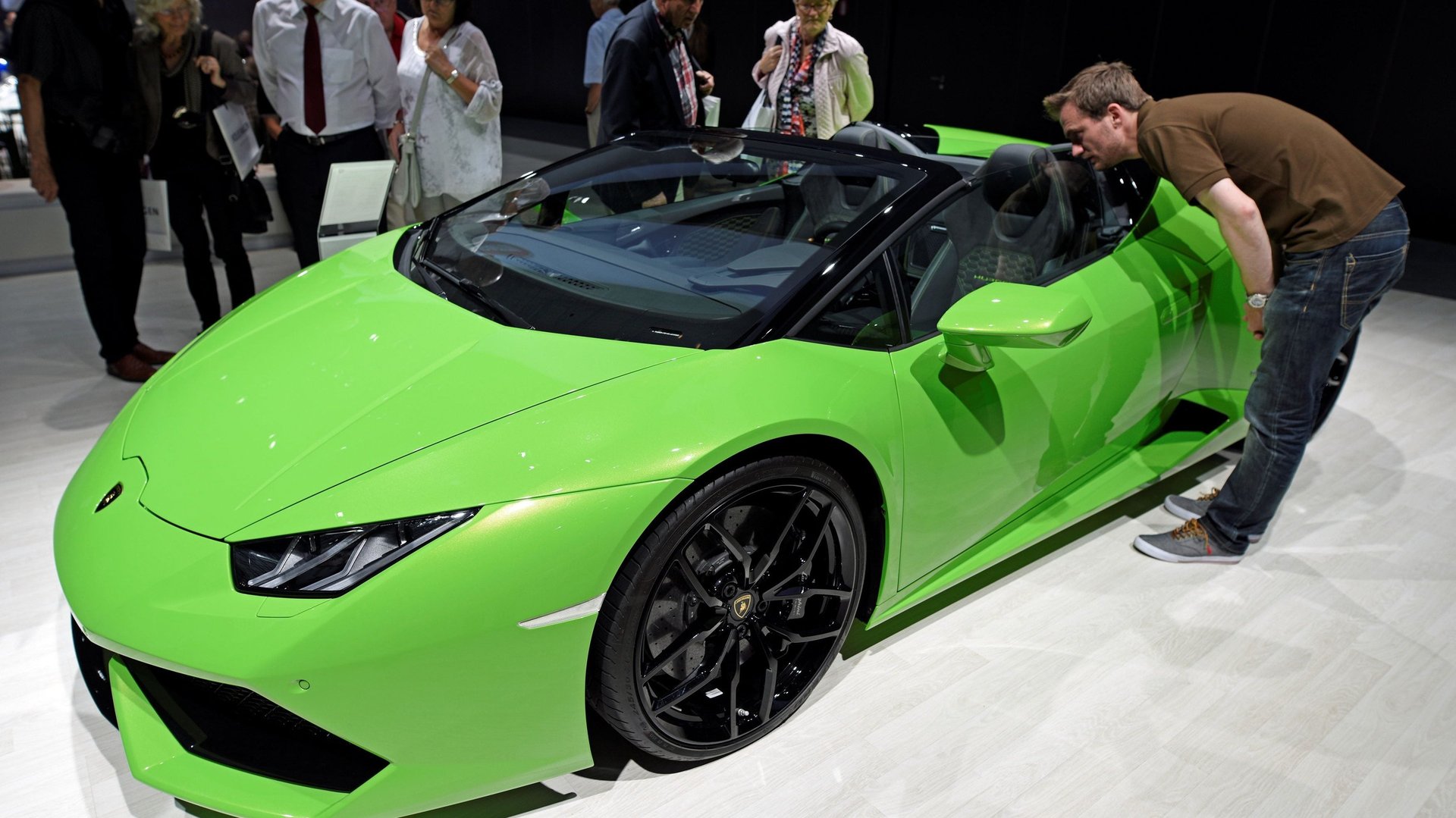Why do men want flashy cars and designer clothes? It’s hormonal
Blame it on hormones.


Blame it on hormones.
Men’s desire for sports cars, expensive watches, and other luxury items may have deep roots in chemistry. A study of 243 men between the ages of 18 and 55 found that those who got a dose of the male sex hormone testosterone responded with an increased preference for status-signaling goods.
The results, published in Nature Communications, add a biological dimension to the psychology of conspicuous consumption, or using flashy, expensive material goods to broadcast social status. Intriguingly, they also suggest that showing off high-status goods is the human equivalent of the showy evolutionary adaptations seen in certain male animals, such as the peacock’s huge and colorful tail or the incredibly large and heavy antlers of a stag.
Conducted by researchers from University of Pennsylvania’s Wharton School, Western University, INSEAD business school, California Institute of Technology, and ZRT Laboratory, the study gave a random selection of men from among the sample group a dose of testosterone, administered through a topical gel. The other men got a placebo gel. (The researchers used saliva samples to measure the men’s testosterone and other hormones.) The participants then completed tasks to measure their preferences for different types of goods.
In the first task, researchers presented the participants with five pairs of apparel brands that pre-testing had found to be associated with different levels of social status—Calvin Klein jeans represented higher status, for example, and Levi’s lower. They made sure the brands weren’t substantively different in terms of quality, to avoid that variable influencing the results. The men who got the dose of testosterone, they found, showed a greater preference for the high-status brands.
Next, they showed the men a series of ads for products such as a car, sunglasses, or a coffee machine. The ads were identical except for using different phrases—also pre-tested—that either associated the item with status, quality, or power and dominance. Men who received the testosterone showed more positive feelings toward products framed as magnifying status than the placebo group. But the testosterone group showed no increased preference for items marketed as being high quality or those described as increasing power. (The goal was to separate out an attraction to status from those other features, specifically power, since the two are closely linked in the animal world but not necessarily so among humans.)
“The findings need to be replicated, but we used a sample size that is four or five times larger than what has been used before, so we have more evidence than we’ve ever had that testosterone is affecting these preferences,” Gideon Nave, an assistant marketing professor at Wharton and the lead researcher on the study, said in a report.
The findings may help marketers to predict men’s behavior, and according to the researchers, link conspicuous consumption to the “handicap principle” in the evolutionary theory of sexual selection. Something like a stag’s massive antlers consume lots of physiological resources without providing a survival advantage, making them a “handicap,” in a sense. But those eye-catching antlers also help males to attract mates and reproduce, because—in a biological twist of logic—only the fittest animals could afford to waste resources on these things and still survive.
Nave likened it to a man buying a Ferrari, when it doesn’t actually get him around better than a Toyota. The study suggests testosterone can influence that purchase. ”Our results provide novel causal evidence for the biological roots of men’s preferences for status,” the authors conclude, “bridging decades of animal behavioral studies with contemporary consumer research.”
There are caveats to the findings. The participants weren’t making actual purchasing decisions, and their choices could play out differently when they have to actually decide what to spend money on. Culture could have an effect, too. Most of the participants were in southern California, but some cultures around the world frown upon showy material displays. The researchers say more studies would be needed to figure out whether the testosterone effect they measured is universal.